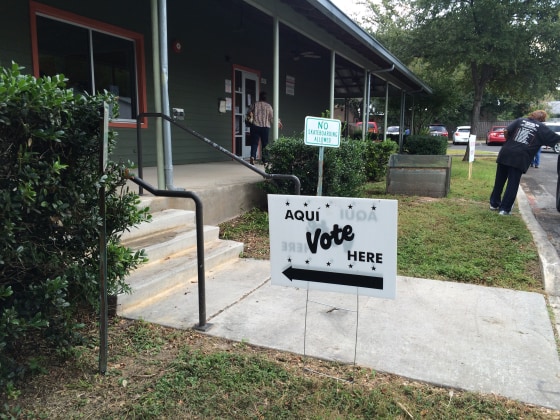AUSTIN, Texas — I never thought it would happen to me. I never thought my voting rights would be violated but they just were.
It was the last day of early voting here in Austin for our city run-off election. I entered my polling place and was asked for my driver’s license. I told the poll worker that I don’t need to provide my driver's license, to which he responded, “Yes you do, it is crucial.” I replied, “No, I do not, and here is why….” and proceeded to take him through a painfully detailed timeline of the Texas voter ID law.
Texas has had a telenovela saga with voter ID laws and voter suppression. I know this well, writing about it here and teaching it every semester in my political science courses.
The cliff notes version of the story is that in 2011 Texas passed a strict photo voter ID law—you can only vote if you have certain forms of ID (e.g. a passport, driver's license, concealed carry gun license, etc). The Department of Justice blocked the law based on the Voting Rights Act. Then in the summer of 2013 the Supreme Court struck down parts of the Voting Rights Act that provided the block to the Texas voter ID law.
RELATED: Latinos Face Long Lines, False Information with Early Voting Underway
Since 2013 the law has been tied up in the courts, but the latest installment of this drama was that the U.S. 5th Circuit Court of Appeals affirmed previous rulings that the law does not comply with what remains of the Voting Rights Act.
In plain English, this means that the Texas’ voter ID law was found to violate our constitutional right to the vote. To provide a temporary fix to this, a federal district judge drew up a provision for those who do not have a photo identification. These individuals must present a document showing their name and address (e.g. a utility bill) and then sign a statement noting that there is a reasonable impediment to them obtaining an identification.
This matters. Experts estimate that more than half a million Texans do not have a valid form of voter identification under Texas law. And among those without a valid voter ID, minorities are overrepresented. A 2014 study found that in Texas, black voters were 179 percent more likely to lack an accepted photo ID than whites & Latinos 242 percent more likely.
A recent study from the University of California, San Diego found that restrictive voter ID laws have a negative effect on turnout, affecting minority voters the most as well as those with less income and education.
The presidential election has come and gone but what happened in my no-drama, un-politicized city election matters.
Ultimately I was able to cast my ballot. I am fortunate to have the resources to secure a drivers license and the knowledge of what our electoral laws are.
However, had I not had a photo ID and the knowledge of the recent court ruling I would have been turned away at the door of my polling place.
The right to vote has been hard fought in the history of this country and we can’t let the ignorance or malice of election officials keep us from our right to cast a ballot. Political rights are something that we must be conscious of and protect day in and day out. Now more than ever, political rights need to be exercised and defended.
Dr. Victoria M. DeFrancesco Soto is a political scientist and contributor to MSNBC, NBCNews.com and Telemundo. She is a professor at the Univ of Texas-Austin and a fellow at the Center for Politics and Governance at the LBJ School of Public Affairs.
